What Animals Live At The North Pole?
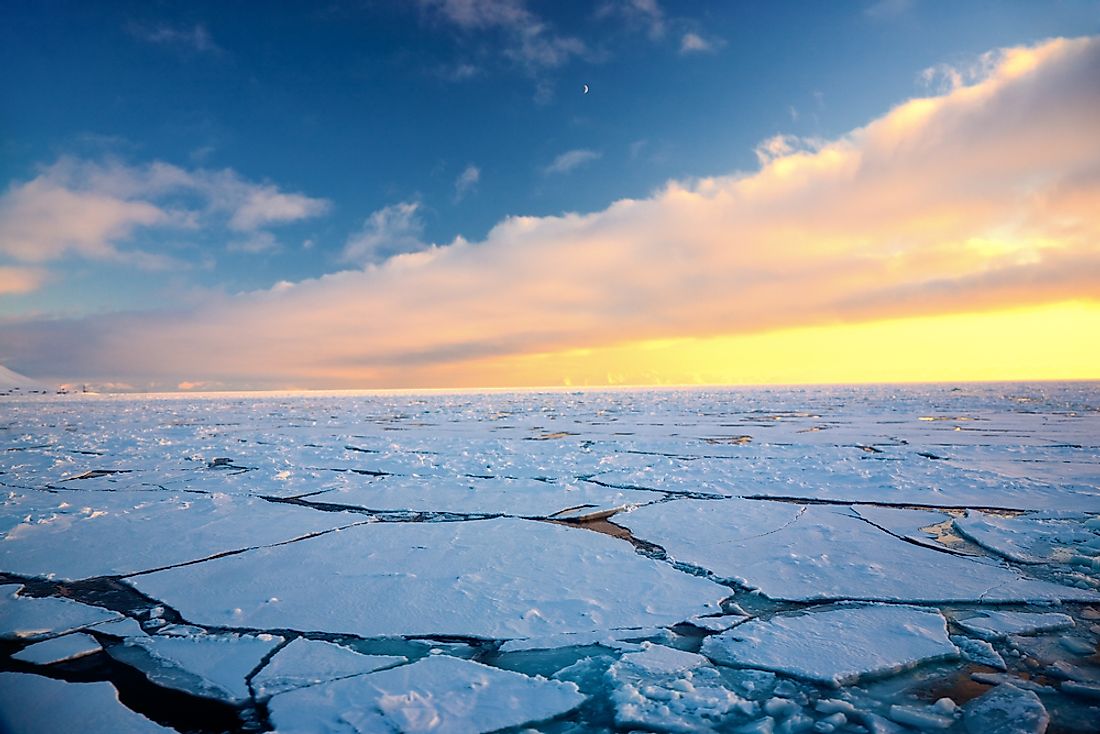
The point on the Earth where the Earth’s rotational axis meets its surface is known as the Geographic North Pole. Unlike the South Pole, the North Pole is not located on a permanent continental landmass. It is located amidst the Arctic Ocean where the water is almost permanently covered by shifting sea ice. The winter temperature in and around the North Pole ranges between −50 to −13 °C. In summer, the temperature hovers around the freezing point. The sea ice in the region is about 2 to 3 m thick. Thus, given these extreme conditions, little life exists in the region.
Our knowledge about life at the North Pole comes from the observations and records made by those who dared to conquer the hazardous Arctic ice to travel to the North Pole in specially designed ships. Now we know “What Animals Live In The North Pole?” Here we enlist the same.
8. Polar Bear
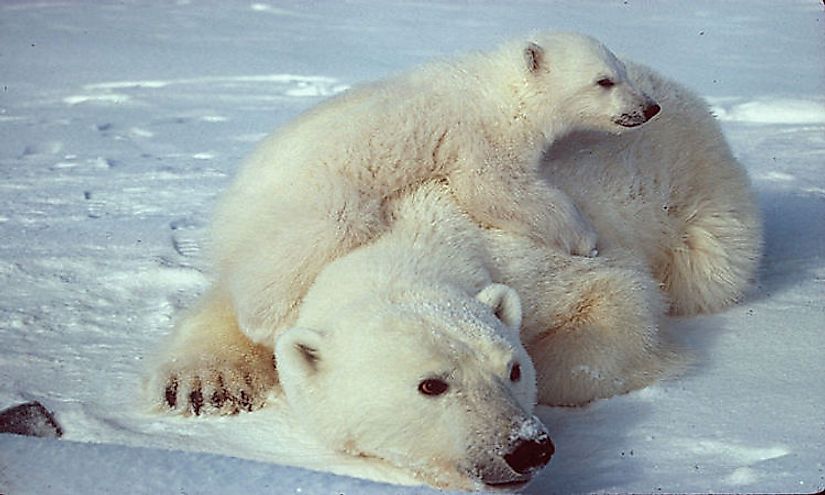
We all associate the polar bear (Ursus maritimus) with the Arctic region. The range of this large, white, carnivore lies largely within the boundaries of the Arctic region. However, though the name of this bear carries the word “Polar,” previously they were rarely expected to travel beyond 82° North. The lack of access to food sources was believed to be the cause of this restriction of range. However, a 2006 expedition by a team of Greenpeace activists and explorers proved otherwise. On a mission to attain the North Pole for the cause of polar bears, to their extreme surprise, the team encountered a polar bear only 1 mile (1.6 km) from the North Pole. As the bear approached their tent on Arctic sea ice at 4 am in the morning, the explorers managed to divert it using a 'bear banger' flare. As per their accounts, the animal appeared not be aggressive but highly curious in nature. The presence of seals around the region where the bear was sighted could explain how it managed to survive 550 miles away from the nearest land.
7. Arctic Fox
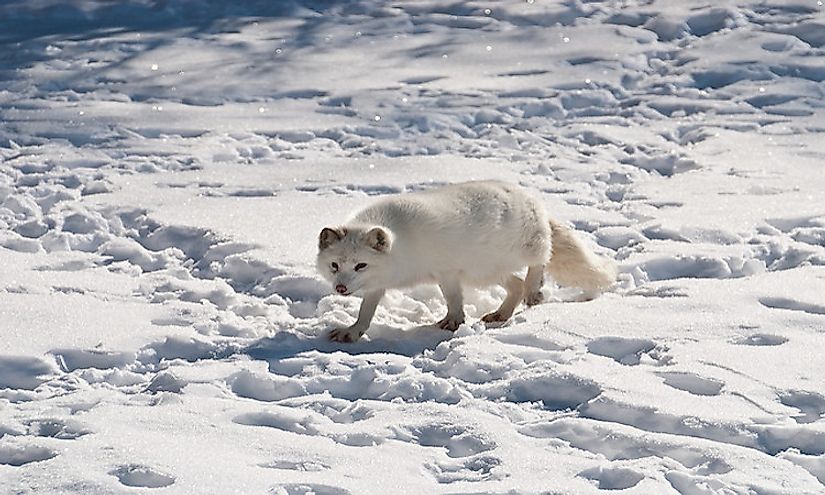
The Arctic Fox (Vulpes lagopus) is a characteristic species of the Arctic. These animals are found in the coastal, inland, and alpine tundra regions of Eurasia, Iceland, Greenland, and North America. Arctic foxes are one of the rare species that have been spotted near the North Pole, at a distance of less than 60 km from the Pole, at 89°40’N. These animals are opportunistic foragers and eat almost everything including berries, eggs of birds, small mammals, fish, carcasses of large mammals, etc. Due to their wide distribution, they are currently classified as Least Concern by the IUCN. However, certain populations of the Arctic Fox are still threatened due to indiscriminate hunting and habitat loss.
6. Ringed Seal
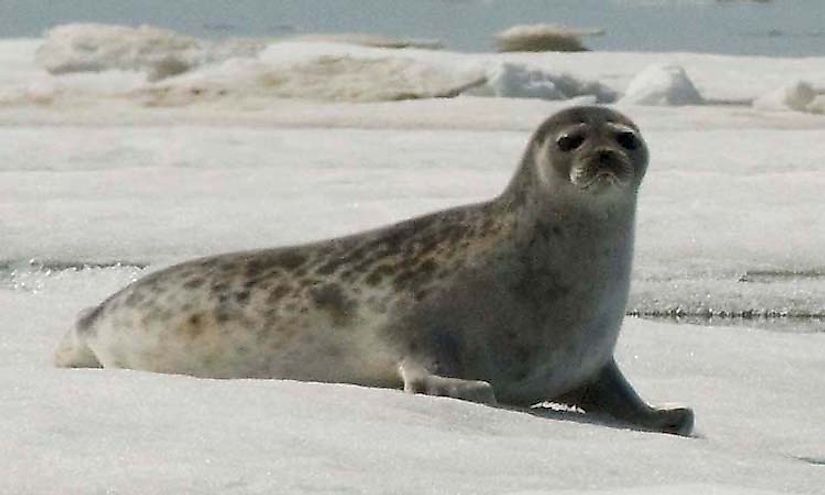
The earless ringed seal (Pusa hispida) inhabits the Arctic and sub-Arctic regions of the world. The fact that these animals can tolerate even the severest winter is clearly evident from findings of researchers who have detected the presence of these seals as far as the North Pole of the Earth. These seals are thus found in the Arctic Ocean, Hudson Bay, Baltic Sea, and the Bering Sea. They feed on fish and invertebrates in the marine waters. These seals also have a large number of predators like the polar bears, Arctic fox, sharks, whales, and walruses.
5. Black-legged Kittiwake
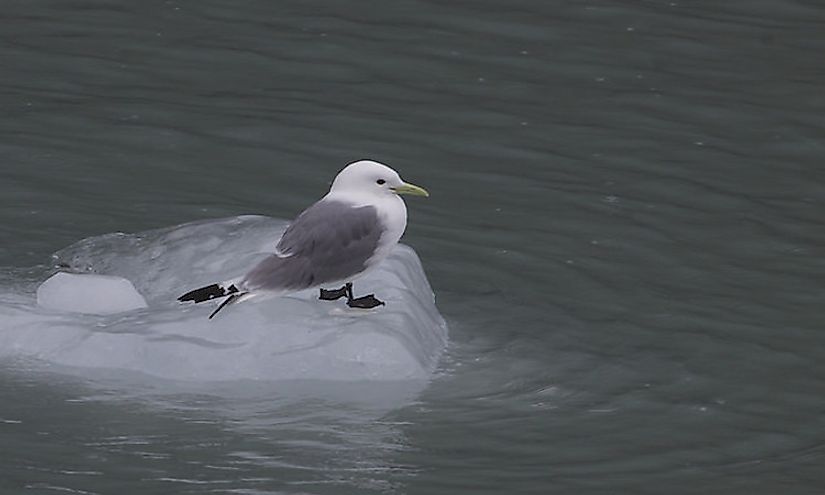
On July 1992, as per the report by a team of researchers in the North Pole, the black-legged kittiwake (Rissa tridactyla) was mentioned as one of the animals sighted "at the North Pole or very near the pole.” The black-legged kittiwake is a seabird species belonging to the Laridae gull family. It is commonly sighted flying over the North Atlantic and North Pacific Oceans and nests in cliffs along the coasts. Fish is their primary source of food.
4. Northern Fulmar
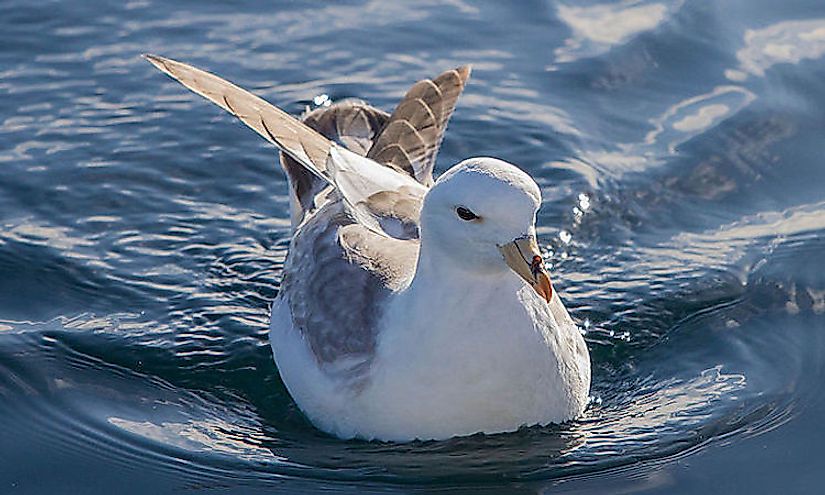
Like the kittiwake, the northern fulmar (Fulmarus glacialis) is also one of the birds that have been spotted at or close to the North Pole. Thus, it finds mention in our list of “What Animals Live In The North Pole?” The bird is commonly observed flying over the North Pacific and the North Atlantic Ocean. The northern fulmar’s wingspan ranges between 102 and 112 cm and it weighs between 450 to 1,000g. Its body color is gray and white, the bill is yellow, and legs are bluish in color.
3. Snow Bunting
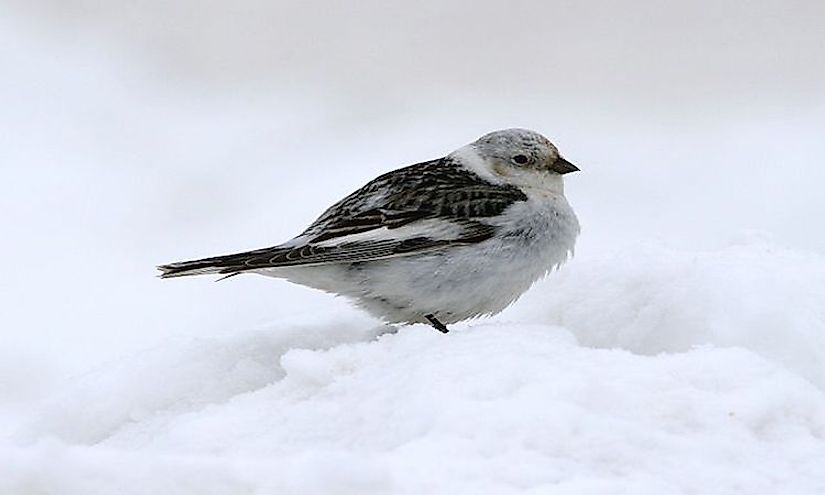
On May 1987, a team of researchers spotted a snow bunting (Plectrophenax nivalis) near the North Pole and thus this avian species finds mention in our list of North Pole fauna. The snow bunting has a circumpolar Arctic breeding range while only a few small populations exist south of the Arctic region on tops of tall mountains. The birds feed on grass seeds and seaweeds from autumn to winter. During summer, they forage for seeds of small Arctic plants like poppy, goldenrod, aster, etc. Invertebrates like butterflies, spiders, flies, etc., also add to the diet of the snow bunting during the warmer season.
2. Unidentified Shrimps And Amphipods
As mentioned below, the North Pole sea anemone is the northernmost lifeform to be discovered and identified. However, the same Russian mission that led to the discovery of the anemone also detected several shrimps and amphipods in the waters at the North Pole. Unlike the sea anemone, these creatures were never collected or identified. Chances of future identification of these creatures are also almost negligible. The mission under the waters at the North Pole is too dangerous to be repeated in the future.
1. North Pole Sea Anemone
Topping the list of “What Animals Live In The North Pole?” is a tiny sea anemone. The sea anemone was discovered by a team of Russian explorers on August 2, 2007. The mission involved a submersible voyage to plant the Russian flag directly beneath the North Pole. It was during this time that a sea anemone was discovered clinging under the frozen crust at the Pole. Without any doubt, it is the most northerly species known till now. As per the accounts of the explorers, the sea anemone was found at a depth of 4,262m beneath the ice crust, in the upper muddy layer. A square langing-net, anchored to the arm of the underwater vehicle, was used to obtain the sea anemone.











